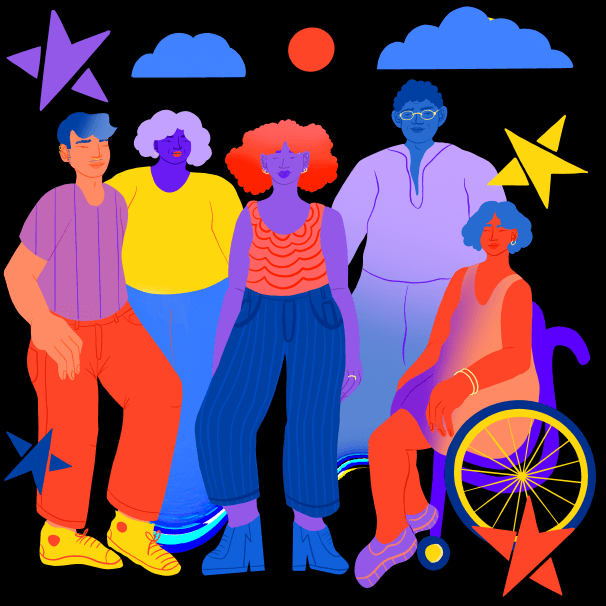By John Paul Brammer
Last week, it was announced that New York City will commemorate Marsha P. Johnson and Sylvia Rivera, two icons of the LGBTQ civil rights movement, with monuments. The proposed location will be just blocks away from the historic Stonewall Inn, the site of the uprising that shaped modern LGBTQ history as we know it.
New York City’s first lady, Chirlane McCray, told The New York Times that the monument will give a “name and a face” to the overlooked activists, noting that LGBTQ rights is often “portrayed very much as a white, gay, male movement.” Public acknowledgment of Johnson and Rivera “counters that trend of whitewashing the history,” she said.
This monument to our transgender leaders is important for many reasons. In a world where trans people of color and their contributions are all too often erased, celebrating Johnson and Rivera in this way provides a welcome reminder of the pivotal role trans people have played in creating a better world for our community. It also is a reminder that, beyond the LGBTQ community, our history matters, and we have always been a part of the American story.
What does this have to do with LGBTQ youth? Well, everything. Here at The Trevor Project, we hear from young people who express feelings of isolation, young people who may not know there are other people like them in the world, or that there are people out there who will accept them for who they are. When we tell the stories of our shared history, stories about the marginalized people who fought tooth and nail to get us where we are, we affirm the next generation of LGBTQ people. We let them know they have a past and a future.
History is a living document. In the grand scheme of things, the Stonewall Uprising wasn’t that long ago. This year, we commemorate its 50th anniversary. Many who were there are with us today. On the other hand, the systemic issues that led to the uprising still exist in the present: discrimination, rejection, and inequality all contribute to disproportionate struggles with mental health for LGBTQ youth today.
Suicide is the second leading cause of death among young people. Lesbian, gay, bisexual, and transgender youth are more than four times more likely to attempt suicide than their peers, and up to 50 percent of all trans people have made a suicide attempt, many before the age of 25.
It’s clear there’s still a long way to go. With World Pride on the horizon, along with the anniversary of the Stonewall Uprising, we have much to reflect on. In that process, let’s remember the importance of stories, both from our past and from our present, from our iconic civil rights leaders to the LGBTQ youth who don’t feel safe enough to come out. When we tell our stories, and we are heard, we win.
The legacies of Marsha P. Johnson and Sylvia Rivera have become bigger than two individuals. This monument will offer people, LGBTQ and not, both in the present and in the future, the opportunity to learn about who we are and where we come from. That’s worth celebrating.


